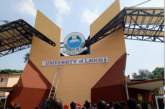
The Federal Ministry of Education has been encouraged by stakeholders in the health sector to address sex education as a separate subject because of the worrisome rise in gender-based violence.
They spoke during a one-day symposium in Lagos, Nigeria, that was put on by Girls Improving Resilience Through Livelihoods and Health, or GIRL-H, in collaboration with the Domestic and Sexual Violence Agency, or DSVA. The symposium’s theme was “Enhancing Response and Rapid Support for Survivors in Lagos, Nigeria.”
The experts recommended creating a specific curriculum on sexual and gender-based violence and said school counselors needed to have more authority to speed up the fight against the problem.
Esther Musa, the director of the Girl-H program in Nigeria, spoke on behalf of Mr. Ndubisi Anyanwu, director of Mercy Corps, and said: “This topic is extremely important to my heart because I have lost loved ones as a result of domestic abuse. We acknowledge that gender-based violence is an issue that transcends borders, gender, and background and affects all demographics, groups, and genders.
‘When it comes to stopping domestic violence, we need to look at the system because some of these systems are enablers. Issues happen, and we don’t have the system to protect survivors or arrest perpetrators.
“So, we need to think of putting a system that would mitigate some of these things in place. If we have policies, they should be put into action no matter who is responsible.”
On how Lagos State is combating GBV, she explained: “Lagos has taken some concrete steps in ensuring that it mitigates gender-based violence. There are centers where victims can report cases and get protection. The Lagos State government also has a center where it accommodates survivors. There are also family clinics where people can go for counseling.
“However, where the challenge lies is that we need more people who will speak out because a lot of people don’t speak out. From our observations, it is usually based on what people will say and what society will say.”
On her part, Dr. Ibijoke Sanwo-Olu, represented by Mrs. Funmilayo Obajimi, added: “This is a nice program needed in all states of the federation.
“When we go through social media, we see things about GBV every day, yet many have refused to speak out. I think we should try as much as possible to encourage people to speak out because it is vital.




